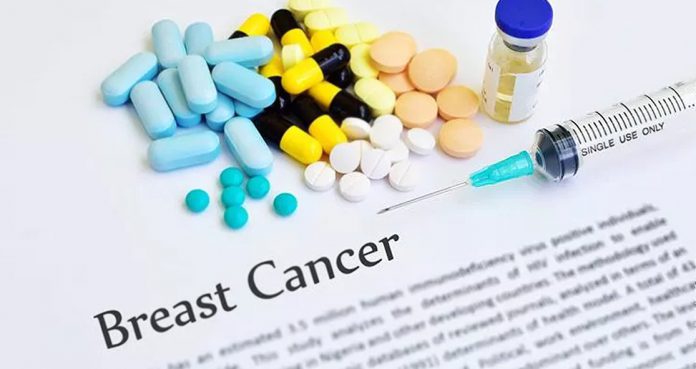On Wednesday, researchers from the Dana-Farber Cancer Institute in Boston reported promising results from the trials of two new, experimental drugs for women with advanced stages of breast cancer.
The drugs were found to be effective at treating an aggressive form of breast cancer that metastasized and failed to respond to other treatments.
The researchers said one drug, in particular, showed great ability to target metastasized tumors in the brain, which are tough to treat. The other drug acts as a home device for tumors, which carries cytotoxic agents and releases them in the tumor.
Lead study author Dr. Ian Krop said, “It’s a guided missile. It’s able to bring the chemotherapy directly to the cancer cell.”
The results of the trials were presented at the San Antonio Breast Cancer Symposium. The study was published in the New England Journal of Medicine.
The study was conducted on 253 women to determine the effects of the guided-missile drug, known as T-DXd, injected every three weeks in different doses. More than 180 women were benefited from the drug and among them, more than 60 percent saw their tumors shrink by at least 30 percent. Plus, there were no signs of cancer in 6 percent of them after two follow-up scans.
Dr. Krop said, “Although the experimental drug was not tested against others, the response rate is three to four times better than what’s usually seen in this situation. The median time until cancer worsened was 16 months, and to see anything hold such serious cancers at bay for more than a year is exciting.”
However, about 60 percent of participants had side effects such as nausea, anemia, fatigue, and low blood counts. Fifteen percent of them stopped the treatment due to these side effects, 25 percent of them developed lung inflammation, while four died.
“Doctors can watch patients closely and give anti-inflammatory medicines if it occurs,” said Dr. Krop. “Because these cancers generally prove fatal, the drug is still beneficial for most patients.”
The other experimental breast cancer drug, called tucatinib, from Seattle Genetics, was found to be able to get into the brain. Dr. Eric Winer from Dana-Farber Cancer Institute said, “It’s a drug that’s particularly able to get into the brain,” and half of the participants had cancer that had spread in the brain.
After two years of tucatinib treatment, more than 45 percent of participants were alive than 27 percent of the others. One-quarter of participants who had cancer spread to the brain were alive without any worsening of the tumors after a year. The common side effects of tucatinib were nausea, diarrhea, fatigue, and some liver dysfunction.





















